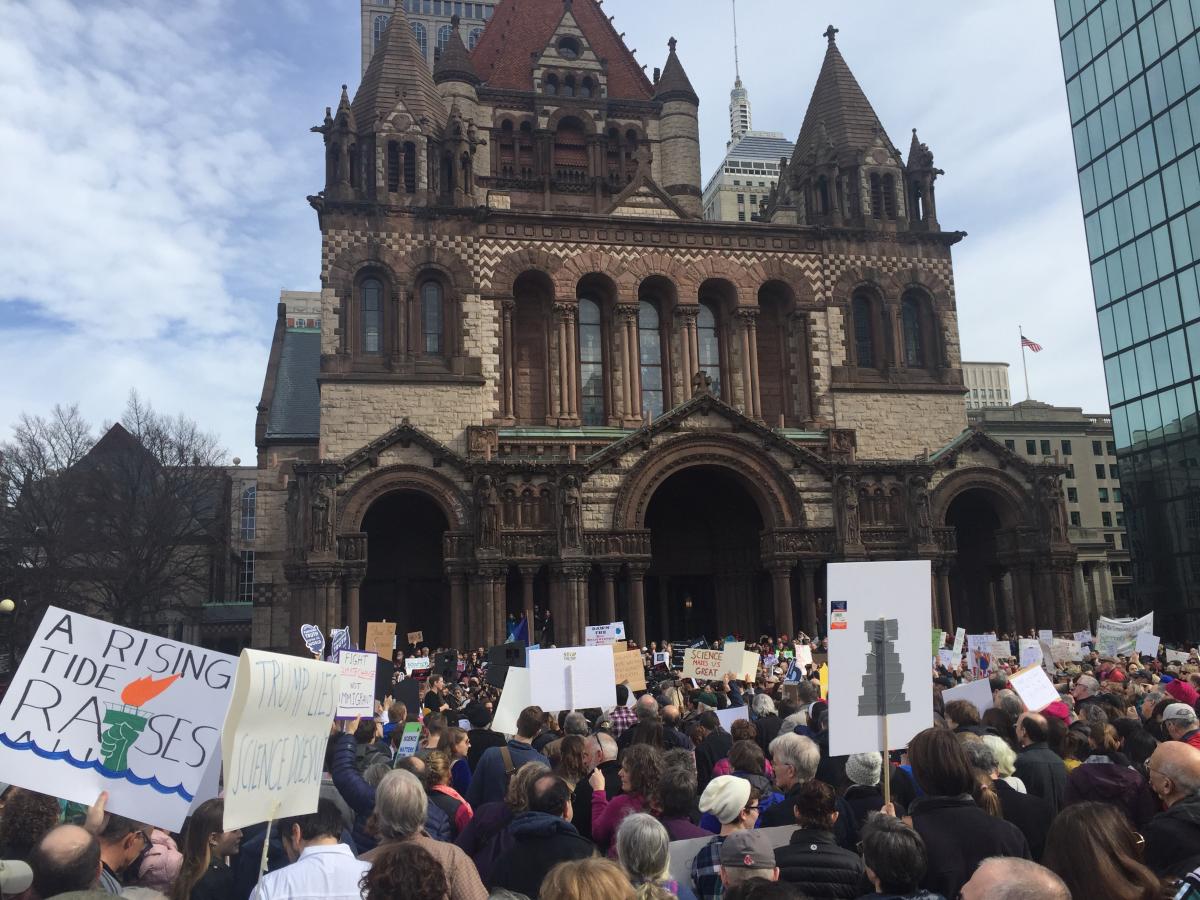
A consistent and somewhat urgent message was threaded through the annual meeting of American Academy for the Advancement of Science (AAAS): scientists must speak up to build broad public support for their work.
That sentiment was reinforced at Sunday s rally in Boston s Copley Square, where an estimated 800 to 1,000 students, scientists and citizens gathered to show their support for open, independent scientific inquiry.
Though it wasn t an official part of the Feb. 16-20 AAAS meeting, the rally reflected views expressed by many AAAS presenters and attendees. Throughout the meeting they spoke of the critical need to restore public faith in facts, empirical evidence and the scientific method.
When you re looking for truth, you re not going to find it in the Halls of Congress or the White House, said Associated Press science writer Seth Borenstein. You re going to find it in data and actual science.
Most emphasized the need to avoid political partisanship and instead emphasize the message that science serves all segments of society and feeds economic growth.
Science supports jobs and a strong economy, which creates a stable society, said AAAS President Barbara Schaal in her keynote address.
Schaal, a Washington University evolutionary biologist who has been recognized for her work in the genetics of plant species, used advancements in agriculture to underscore how science has benefitted the world. Crop yields have doubled in the past century, she noted, and the nutritional value has increased.
To many, agriculture is old-fashioned, unsophisticated and we don t need to worry about it, Schaal said. But we are facing many grand challenges in agriculture.
Science is needed now more than ever to help reduce the environmental impact of agriculture and ensure that the world s growing population has access to inexpensive, nutritional food, while also grappling with new pests and plant diseases, climate change, and increased demands for plant-based industrial products.
Those who support science must make a strong case for research that s undirected and curiosity-driven, Schaal said.
Science depends on the free-flow of ideas and people, said Geri Richmond, the incoming president of AAAS and a University of Oregon chemistry professor. We must and we will continue to speak out on these issues, and we welcome all your ideas on how to do it.
The US has benefitted more than perhaps any other nation from the exchange of scientists, Schaal noted in reinforcing the stance taken by AAAS and universities across the globe against a restrictive immigration policy in America.
Scientists can help build credibility with the public by explaining how their work impacts society, Brown University President Christina Paxson said.
We need to be able to articulate what scientists are doing for society very clearly, concisely and compellingly, added Tracey Holloway, a professor at the University of Wisconsin-Madison. She urged scientists to base their public engagement on the values you care about, and what you plan to do about it. Focus on shared objectives.
But Naomi Oreskes, an author and science historian at Harvard University, said some scientists are afraid they ll be branded as activists and lose credibility if they speak out. However, she had been unable to find any instances of that actually occurring. And in any case, scientists can no longer complacently assume that the facts will speak for themselves.
The facts don t speak for themselves because we live in a world where many people are trying to silence facts, Oreskes said. What we re seeing now is a wake up call for those who thought other people were taking care of it [the defense of science], but they aren t. We all have to get involved.
Self-censorship is what I fear most, said science broadcaster and producer Miles O Brien. Now is not the time to pull our punches. It s time to get out in the streets and march and start screaming about what s true and factual. There s a great cynicism in our country.
Or to use the words of Brown biology Professor Kenneth Miller: Science isn t just a collection of knowledge. It s a way of thinking. It s a search for truth that illuminates every aspect of human existence.
